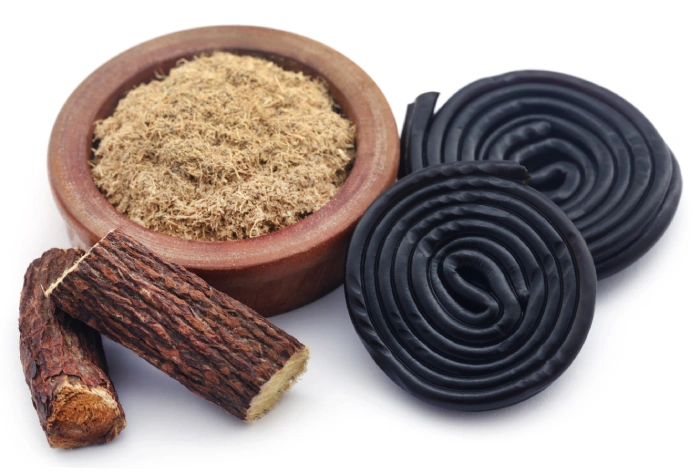Resveratrol in Red Wine
A chemical found in red wine might have the potential to prevent bowel cancer, according to recent research. The compound in question, resveratrol, is a natural substance primarily found in red grapes but also present in smaller amounts in blueberries, raspberries, and peanuts. This compound will feature prominently in a major clinical trial to evaluate its effectiveness in preventing the development of bowel cancer.
Researchers are currently recruiting 1,300 patients for what is expected to be one of the largest studies on preventive therapeutics. The trial will take place across 60 locations in England and Wales over the coming years. According to experts, the study could have significant implications for people at heightened risk of developing the disease.
Participants in the study, aged between 50 and 73, have all been identified as having bowel polyps through screening via the NHS bowel screening programme. Bowel polyps are typically benign growths that have the potential to develop into cancer if left unchecked. The polyps will be removed from participants, with some taking aspirin alone or a combination of aspirin and metformin as part of the main study. A separate group will receive purified resveratrol or a placebo.
Those in the aspirin and metformin groups will be asked to take these medications daily for three years. Meanwhile, participants receiving resveratrol or a placebo will only take their assigned substance for one year. After the trial period, all participants will undergo a colonoscopy to check for any regrowth of the polyps.
Professor Karen Brown, from the University of Leicester, who is leading the study, stated: “We are embarking on a unique experiment to see how drugs could stop bowel polyps from growing. This trial could have big implications for how we prevent bowel cancer in people who are most likely to develop the disease as they get older.â€
Bowel cancer remains the fourth most common cancer in the UK, with an estimated 44,000 new cases diagnosed each year, or around 120 cases daily. Though the exact causes of bowel cancer are still not fully understood, the NHS advises regular exercise, a diet rich in fruits and vegetables, reduced alcohol consumption, and quitting smoking as methods to reduce the risk of developing the disease.
Earlier studies have suggested that purified resveratrol can inhibit the growth of cancer cells in small doses. The ongoing trial, named the Colo-Prevent trial, will examine whether resveratrol could prevent the recurrence of polyps in individuals at high risk. The research is funded by Cancer Research UK and marks a significant step in advancing cancer prevention strategies.
Dr. Iain Foulkes, the executive director of research and innovation at Cancer Research UK, emphasized the trial’s potential to open a new era in cancer prevention. “This trial opens the door to a new era of cancer research, where cancer becomes much more preventable through cutting-edge science,†he said. “The insights gained from the trial will change how we think about cancer prevention and give more people the chance of longer, better lives, free from the fear of cancer.”
Commentary by YourDailyFit columnist Alice Winters

Resveratrol has long been a subject of intrigue, primarily for its potential health benefits as a polyphenol antioxidant. Found naturally in red wine, grapes, and a handful of other foods, resveratrol has been touted for its potential anti-inflammatory, anti-aging, and heart-healthy properties. The news that resveratrol may help prevent bowel cancer adds a new dimension to its already impressive resume. However, the suggestion that a chemical compound found in red wine could be a major player in cancer prevention requires a closer look, both from a scientific and a practical perspective.
Firstly, while resveratrol has shown promise in laboratory conditions, much of the evidence regarding its anticancer effects remains preliminary. Studies involving purified resveratrol have shown that it can inhibit the growth of cancer cells, but most of these have been conducted in vitro (i.e., in cell cultures) or in animal models. Translating these results into meaningful clinical outcomes in humans is notoriously challenging. Human metabolism processes and bioavailability differ significantly from those in lab settings, which raises questions about whether the doses required to have an impact on polyp formation or cancer prevention would be achievable without adverse effects.
The ongoing Colo-Prevent trial, with its robust design and large participant pool, offers an exciting opportunity to clarify whether resveratrol can actually prevent cancer. The study’s approach—administering resveratrol alongside other well-researched substances like aspirin and metformin—could yield some crucial insights into the synergistic effects of these compounds. The fact that it is targeting individuals who are already at risk for bowel cancer, due to the presence of polyps, adds to the trial’s potential significance.
However, the broader implications of this research deserve careful scrutiny. While the study may show that resveratrol can indeed have a preventative role, the effectiveness of this natural compound must be viewed in the context of other lifestyle factors that are crucial in preventing bowel cancer. Diet, exercise, and regular screenings remain cornerstones of cancer prevention, and while resveratrol might offer an additional tool in the arsenal, it should not overshadow these foundational strategies. Furthermore, resveratrol supplements, which are marketed widely in the health and wellness industry, often contain formulations that vary greatly in bioavailability—meaning consumers may not be receiving the same benefits as those tested in clinical trials.
Another point of concern is the duration and scale of the study. With resveratrol being administered for just one year to a subgroup of participants, the long-term effects remain unknown. Bowel cancer’s progression is slow, often taking many years to develop, which means that longer trials or follow-ups would be necessary to gauge the lasting impact of resveratrol treatment.
Finally, there is the question of consumer expectations. As the research attracts media attention, consumers may begin to look for resveratrol supplements as a “miracle†solution for cancer prevention. This potential misinterpretation could lead to overreliance on supplements rather than focusing on comprehensive lifestyle changes that have proven benefits in cancer prevention. It is essential that the scientific community and health organizations manage these expectations, emphasizing that resveratrol, if proven effective, should be seen as part of a broader preventive approach, not a standalone cure.
In summary, the upcoming results from the Colo-Prevent trial could offer exciting developments in our understanding of cancer prevention, particularly for those at higher risk. However, consumers should be cautious about prematurely embracing resveratrol as a definitive cancer-fighting solution and instead consider it within the context of established preventive measures.



